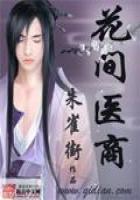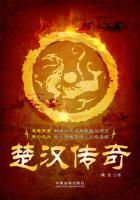Stiggins's plug hat and umbrella, is with us. It is an office. An office of trust. And from time to time there is found an official to fill it. He is a public man. The least prominent of public men, the most unobtrusive, the most obscure if not the most modest.
But however obscure, a public man may be told the truth if only once in his life. His office flourishes in the shade; not in the rustic shade beloved of the violet but in the muddled twilight of mind, where tyranny of every sort flourishes. Its holder need not have either brain or heart, no sight, no taste, no imagination, not even bowels of compassion. He needs not these things. He has power. He can kill thought, and incidentally truth, and incidentally beauty, providing they seek to live in a dramatic form. He can do it, without seeing, without understanding, without feeling anything; out of mere stupid suspicion, as an irresponsible Roman Caesar could kill a senator. He can do that and there is no one to say him nay. He may call his cook (Moliere used to do that)from below and give her five acts to judge every morning as a matter of constant practice and still remain the unquestioned destroyer of men's honest work. He may have a glass too much.
This accident has happened to persons of unimpeachable morality--to gentlemen. He may suffer from spells of imbecility like Clodius.
He may . . . what might he not do! I tell you he is the Caesar of the dramatic world. There has been since the Roman Principate nothing in the way of irresponsible power to compare with the office of the Censor of Plays.
Looked at in this way it has some grandeur, something colossal in the odious and the absurd. This figure in whose power it is to suppress an intellectual conception--to kill thought (a dream for a mad brain, my masters!)--seems designed in a spirit of bitter comedy to bring out the greatness of a Philistine's conceit and his moral cowardice.
But this is England in the twentieth century, and one wonders that there can be found a man courageous enough to occupy the post. It is a matter for meditation. Having given it a few minutes I come to the conclusion in the serenity of my heart and the peace of my conscience that he must be either an extreme megalomaniac or an utterly unconscious being.
He must be unconscious. It is one of the qualifications for his magistracy. Other qualifications are equally easy. He must have done nothing, expressed nothing, imagined nothing. He must be obscure, insignificant and mediocre--in thought, act, speech and sympathy. He must know nothing of art, of life--and of himself.
For if he did he would not dare to be what he is. Like that much questioned and mysterious bird, the phoenix, he sits amongst the cold ashes of his predecessor upon the altar of morality, alone of his kind in the sight of wondering generations.
And I will end with a quotation reproducing not perhaps the exact words but the true spirit of a lofty conscience.
"Often when sitting down to write the notice of a play, especially when I felt it antagonistic to my canons of art, to my tastes or my convictions, I hesitated in the fear lest my conscientious blame might check the development of a great talent, my sincere judgment condemn a worthy mind. With the pen poised in my hand I hesitated, whispering to myself 'What if I were perchance doing my part in killing a masterpiece.'"Such were the lofty scruples of M. Jules Lemaitre--dramatist and dramatic critic, a great citizen and a high magistrate in the Republic of Letters; a Censor of Plays exercising his august office openly in the light of day, with the authority of a European reputation. But then M. Jules Lemaitre is a man possessed of wisdom, of great fame, of a fine conscience--not an obscure hollow Chinese monstrosity ornamented with Mr. Stiggins's plug hat and cotton umbrella by its anxious grandmother--the State.
Frankly, is it not time to knock the improper object off its shelf?
It has stood too long there. Hatched in Pekin (I should say) by some Board of Respectable Rites, the little caravan monster has come to us by way of Moscow--I suppose. It is outlandish. It is not venerable. It does not belong here. Is it not time to knock it off its dark shelf with some implement appropriate to its worth and status? With an old broom handle for instance.















